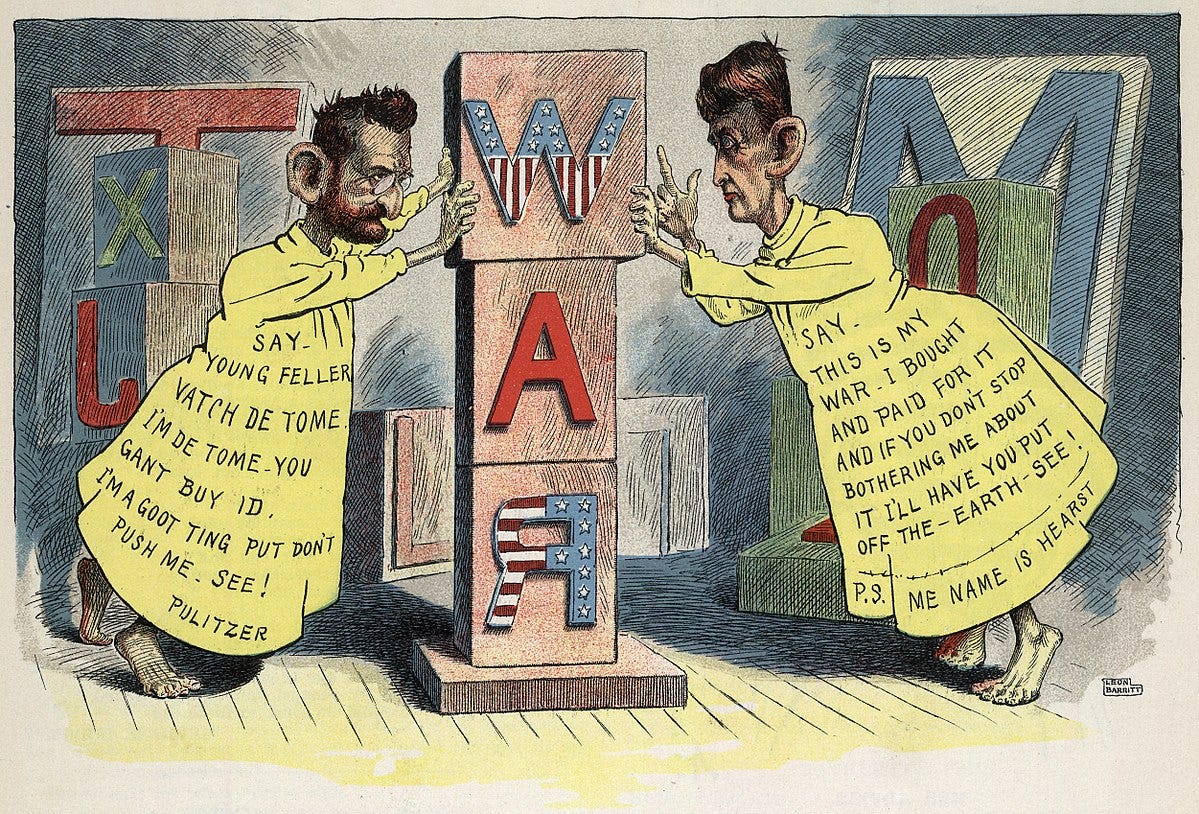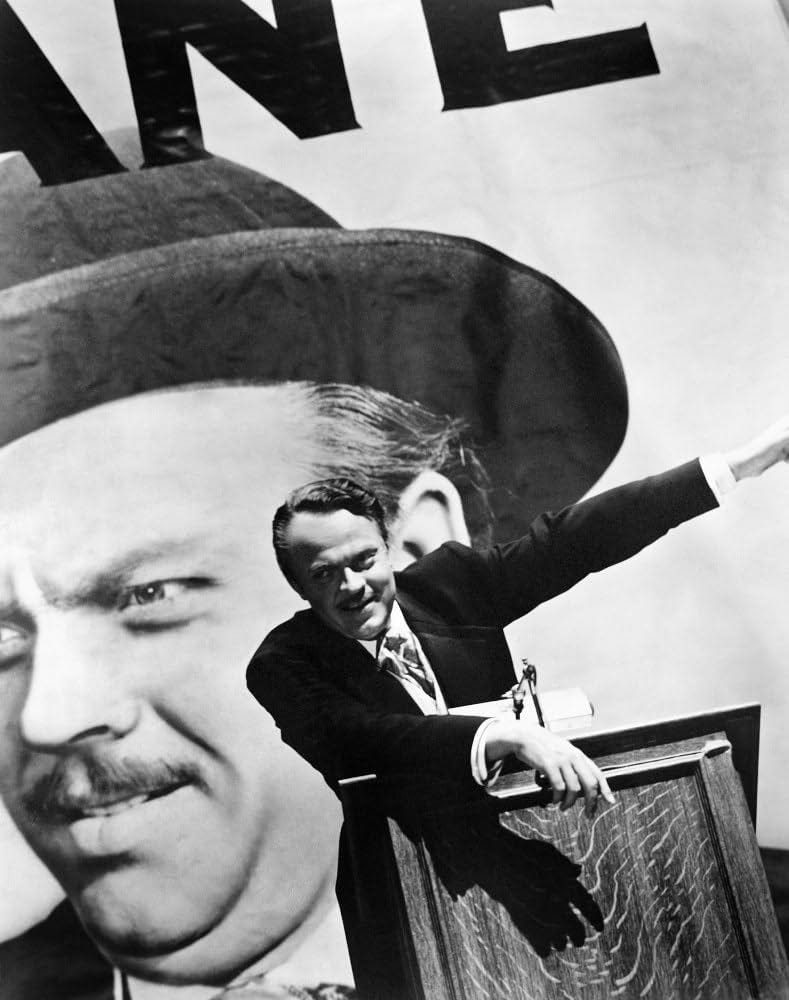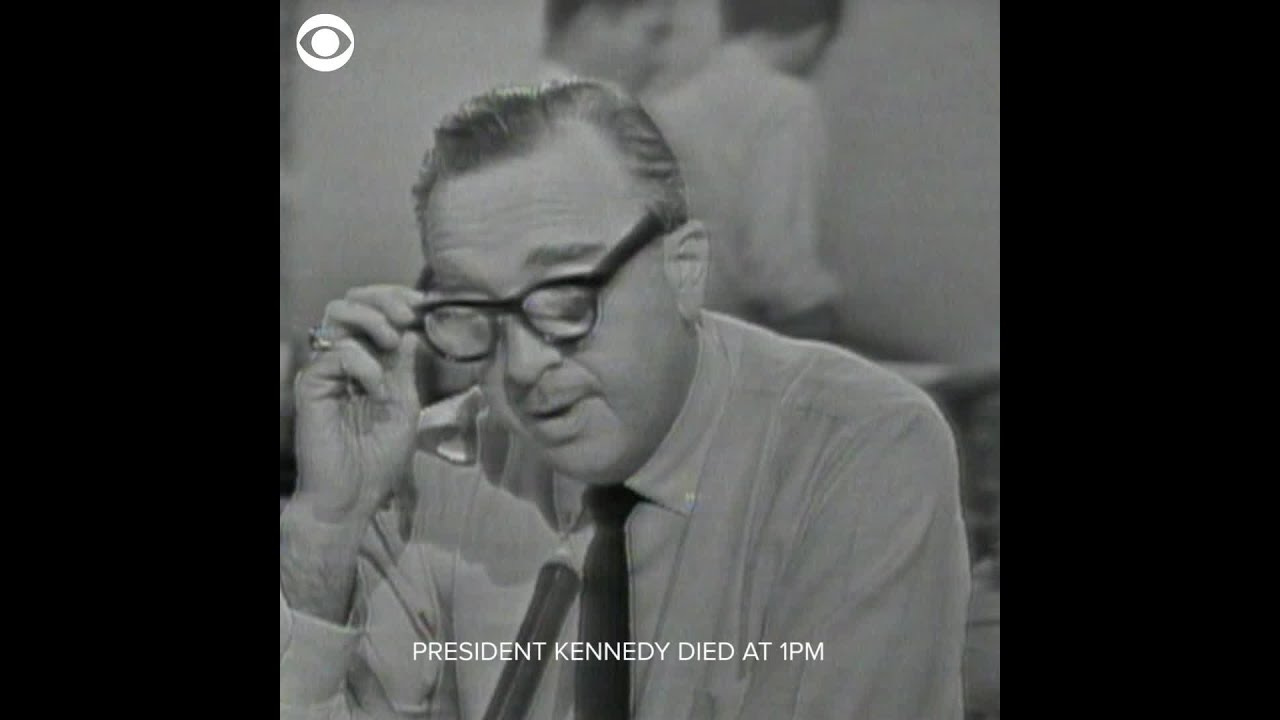By guest author Hamilton Wesley Ellis.
On April 6, 2024, the Associated Press published an article decrying anonymous right-wing posters for spreading “misinformation” during an election year. The joke is that four years ago, the once-reputable news service (along with every other major media outlet, save the New York Post) had engaged in a coordinated effort to cast doubt as to the existence of a very real laptop containing copious evidence of the many crimes of Hunter Biden. The dissemblance was part of a plot to oust the Fourth Estate’s avowed enemy, Donald J. Trump. The scheme was successful, and after the 2020 election, Time ran a laudatory piece celebrating the “Shadow Campaign” that saved Democracy™. Now the very same people, who aren’t honest enough to tell their audience the difference between rooster and hen, inform us that the CumPumper1488s of the world are the real problem. Modern news media is becoming less profitable by the day as it erodes public trust; yet they refuse to deviate from a course guided by an overweening lack of self-awareness.
When once-mighty outlets like Vice shutter their doors, the news is taken with a generous helping of Schadenfreude by most of the sighted world. Industry brahmins are nonplussed as to why. The media industry is a broken wristwatch: they are right about two things, despite the fact that they no longer serve their intended purpose. Misinformation is truly a pathogen that’s slowly poisoning the West. Political division is careening well past the point where differences can be reconciled. The problem is that when the narrative masters look upon all the lies and strife, they’re incapable of reading their name on the byline. On the rare occasion a member of the establishment breaks rank to note unhinged bias and pink activism in the media, he’s promptly culled from the herd. Such was the fate of Uri Berliner.
Berliner had worked at National Public Radio for 25 years before being suspended for his article in The Free Press criticizing the non-profit’s descent into progressive advocacy in the wake of Donald Trump’s 2016 election. While Berliner himself remains openly contemptuous of the 45th President, he posited that Trump-Derangement-as-editorial-policy might be counterproductive to NPR’s stated mission of reflecting the broad spectrum of viewpoints held by Americans. Berliner’s random act of sensible journalism couldn’t have been more inopportunely timed; the company had recently named an inane progressive, Katherine Maher, as its CEO. Maher is infamous for a well-documented history of liberal activism that is indistinguishable from parody. She once chided Hillary Clinton for using the phrase “boys and girls,” which she deemed as exclusionary to transsexuals. On another occasion Maher declared, “Our reverence for the truth might be a distraction that’s getting in the way of finding common ground and getting things done.” Obviously, Berliner’s pangs of conscience are verboten in a company run by Katherine Maher. He resigned from NPR shortly after his suspension. Berliner was an anachronism, a vestigial remnant of the days when journalists strove to be objective while reporting. The new face of the industry is someone more along the lines of Ms. Taylor Lorenz.
Lorenz is an immunocompromised stealth editor currently employed by the Washington Post. She rose from humble beginnings as a Tumblr blogger to gigs writing for the New York Times, Daily Beast, and Business Insider. She is probably best known for either her perpetual feud with sister shrew and Libs of TikTok owner Chaya Raichik or her coverage of the Depp v. Heard trial wherein she falsely attributed fabricated statements to a handful of YouTubers and Johnny Depp representative Adam Waldman. Despite her penchant for branding any criticism directed her way as “right-wing extremism,” Lorenz somehow managed to get punched in the head at Richard Spencer’s luminescent “Unite the Right” rally by a counter protestor. Don’t let the comical nature of Ms. Lorenz’s career mislead you into thinking that she is an unfit representation of journalism in the year 2024. On the contrary, she’s a paragon of her field. Lorenz was included in Fortune’s “40 Under 40” and was granted a Visiting Fellowship at Harvard University’s Berkman Klein Center for Internet & Society. Don’t hate the clown; hate the circus. On January 24, 2024, Lorenz published a video missive declaring that the journalism industry is in a death spiral. Never once did it dawn on her that she may bear some responsibility for the moribund state of things. Why would she? Taylor Lorenz can only fail upward in an industry that shuns someone like Berliner.
The journalism industry has always operated under the tacit assumption that any immediate profit that it foregoes will get recouped on the back end in the form of influence. William Randolph Hearst and Joseph Pulitzer may have memed the Spanish-American War into existence, but they lost lots of money doing so. The titans of newsprint incurred heavy financial losses during the heyday of Yellow Journalism, but in return for that loss they made an indelible mark on the American Mythos.
Today, whenever a billionaire like Jeff Bezos or Mark Benioff deigns to purchase a news outlet, he isn’t doing so to save the industry or Democracy™, despite any pablum he lets slip to that effect. When a billionaire gets into the news game, he’s thinking about Charles Foster Kane. The titular character of Orson Welles’s magnum opus Citizen Kane (1941) was an amalgamation of several historical titans of industry, including Hearst and Pulitzer.
Vanity compels billionaires to purchase news outlets because they want to hitch their wagons to a legend and invoke the spirit that made America great in the first place. The problem is, today’s news outlets aren’t just losing money; they’re also losing influence. There is an entire genre of polling dedicated to chronicling the American public’s dwindling trust in its news media. Every year, the credibility gap widens. The Berliner–NPR fiasco will surely widen the gulf more. It’s hard to believe, but once upon a time, the most trusted person in popular culture was a news man. If the President of the United States was having a stellar year, he’d come in second to Walter Cronkite when Americans were asked who they trusted most. The CBS News anchor endeavored to be as objective as possible while covering stories of national interest to 28 million viewers a night. It wasn’t just fairhandedness that drew an audience to Cronkite; it was also pathos. When Cronkite choked back tears while announcing the death of JFK, or when he exclaimed, “Hot diggity dog!” while witnessing the Apollo 11 Moon Landing, he was participating in a shared experience with his viewers on an intellectual and emotional level. Contrast that with members of today’s media establishment, who are incapable of relaying any story without seething animus for half the country.
Big Journalism reaps what it sows. The industry may not be able to address its problems in a manner that proposes a solution on the horizon, but it can sure dole out blame. Nominal leftist outlets blame their nominal rightward competition as the root cause of the trust collapse; all outlets band together to blame social media and the nebulous idol known as “the algorithm” in a bipartisan manner. Now, in their infinite wisdom, they have reasoned that anons are at fault for their own shortcomings. This is as removed from objective reality as everything else they do these days, but it is also an expression of palpable fear and resentment. Anonymous commenters have proven themselves adept at the one thing mainstream news media constantly makes pretense to, yet always falls short of: speaking truth to power. And unlike the Uri Berliners of the world, anons cannot be sidelined or silenced by the corporate cult of Diversity, Equity, and Inclusion. This terrifies the journalism industry, and they’ve earned it.










Like Auron Macintyre says, however much you hate journalists, it's not enough.
I’ve interacted with several local journalists before. I don’t have great impressions of them.